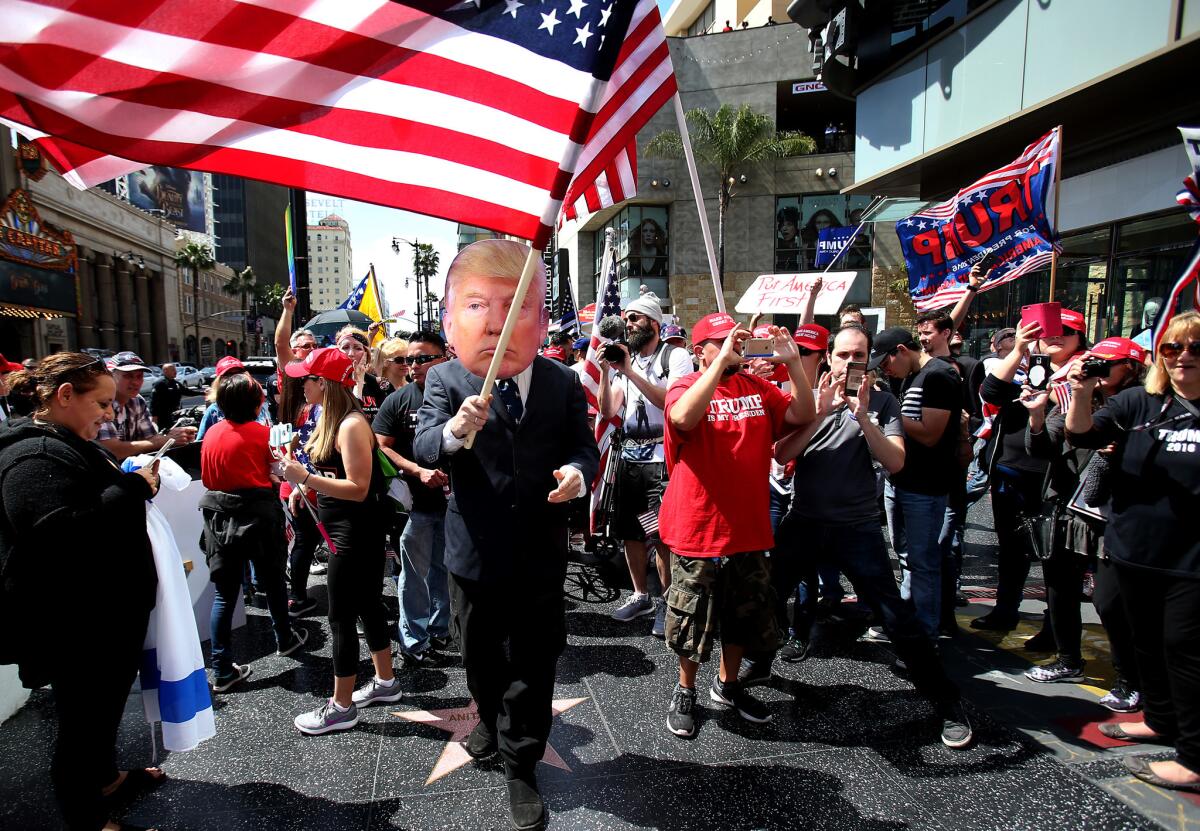Opinion: Among Times letter writers, Trump supporters are just as unpopular as President Trump

- Share via
Regular readers likely understand by now that President Trump’s popularity among our letter writers dips well below his approval rating — hovering around 35%, according to Gallup — in national polls. The letters that are published in The Times reflect the mix of opinions sent to us (you’ll have to take my word for it).
Perhaps just as unpopular as the president are his supporters. In response to a Times article published Tuesday on Trump voters in parts of Pennsylvania, not a single reader responded positively to their wish that the president’s critics “give him a chance.” Letter writers were only mildly more sympathetic to the California Trump voters profiled in a Friday article who shared their “survival skills.”
Editorial: Our Dishonest President »
Mary Ross, a resident of Cambria, Calif., says friendship is based on shared values:
Sorry to hear that some Trump supporters are losing friends. I would love to tell them not to take it personally, but I can’t.
Trump has caused many to think about what kind of person would support such a president.
— Alexa Smith Maxwell, Los Angeles
In large part friendships happen when people feel that they hold similar values. When you decided that a man who showed disdain for minorities and those less fortunate physically and economically, a braggart who holds women as objects to be judged and used, was the man you wanted to be president, you shattered that trust.
You may have had other reasons for voting as you did, but none of that matters now. Your friends know what you are willing to sacrifice and what you will believe to get your way.
Santa Clarita resident Arthur G. Saginian gives advice for maintaining politically fraught friendships:
There’s a very good reason for the old saying about what not to talk about at mixed gatherings, namely politics and religion. These two subjects are highly personal. They become part of who people are, their identity as a person; they feel validated by their beliefs and their positions, and there’s nothing to be gained by challenging them.
My advice would be for people to play the role of the therapist. Listen and act like you’re taking notes. Every now and then say something like “uh-hm” or “I see, so how does that make you feel?”
This may sound patronizing, but what are your options if you want to keep your friends?
Alexa Smith Maxwell of Los Angeles says this isn’t about politics:
I am struck by the lack of reflection on the part of Trump voters who find themselves shunned.
In other circumstances, when friends are appalled by someone’s actions, wouldn’t it be natural to consider what exactly has caused the rift? Clearly it is not a simple matter of political party differences. Most members of differing political parties seem to be able to live with and even like each other.
But Trump has caused many to think about what kind of person would support such a president. Perhaps in future articles on this issue, The Times might ask some deeper questions.
Follow the Opinion section on Twitter @latimesopinion and Facebook
A cure for the common opinion
Get thought-provoking perspectives with our weekly newsletter.
You may occasionally receive promotional content from the Los Angeles Times.







